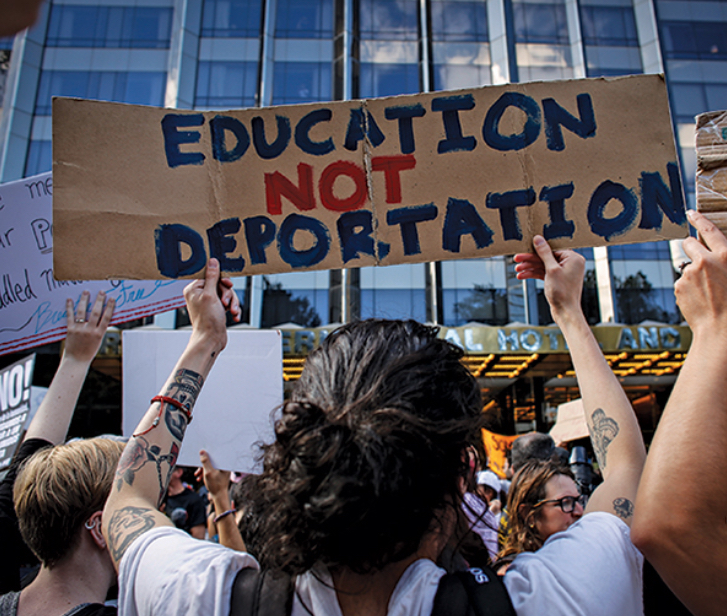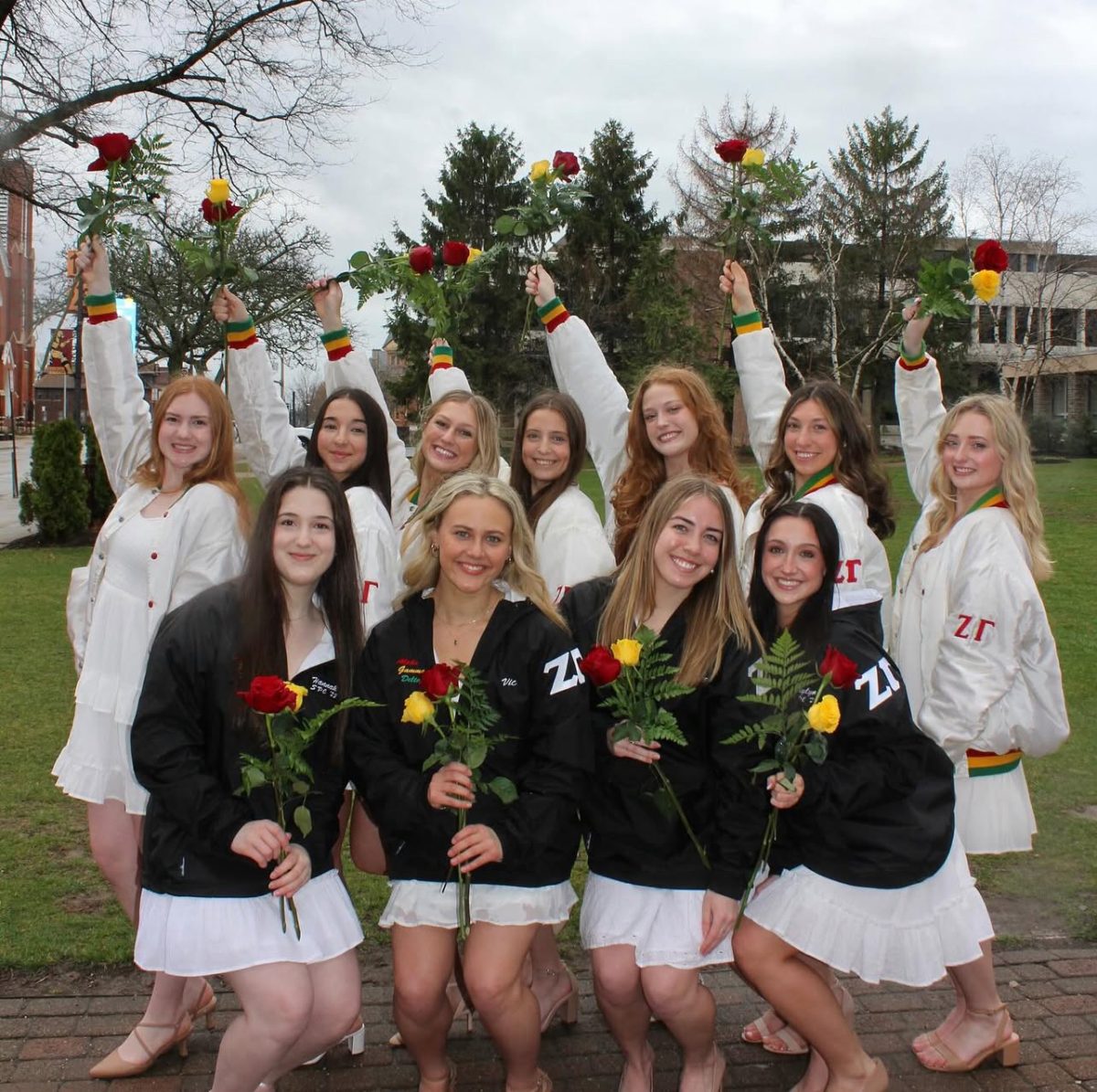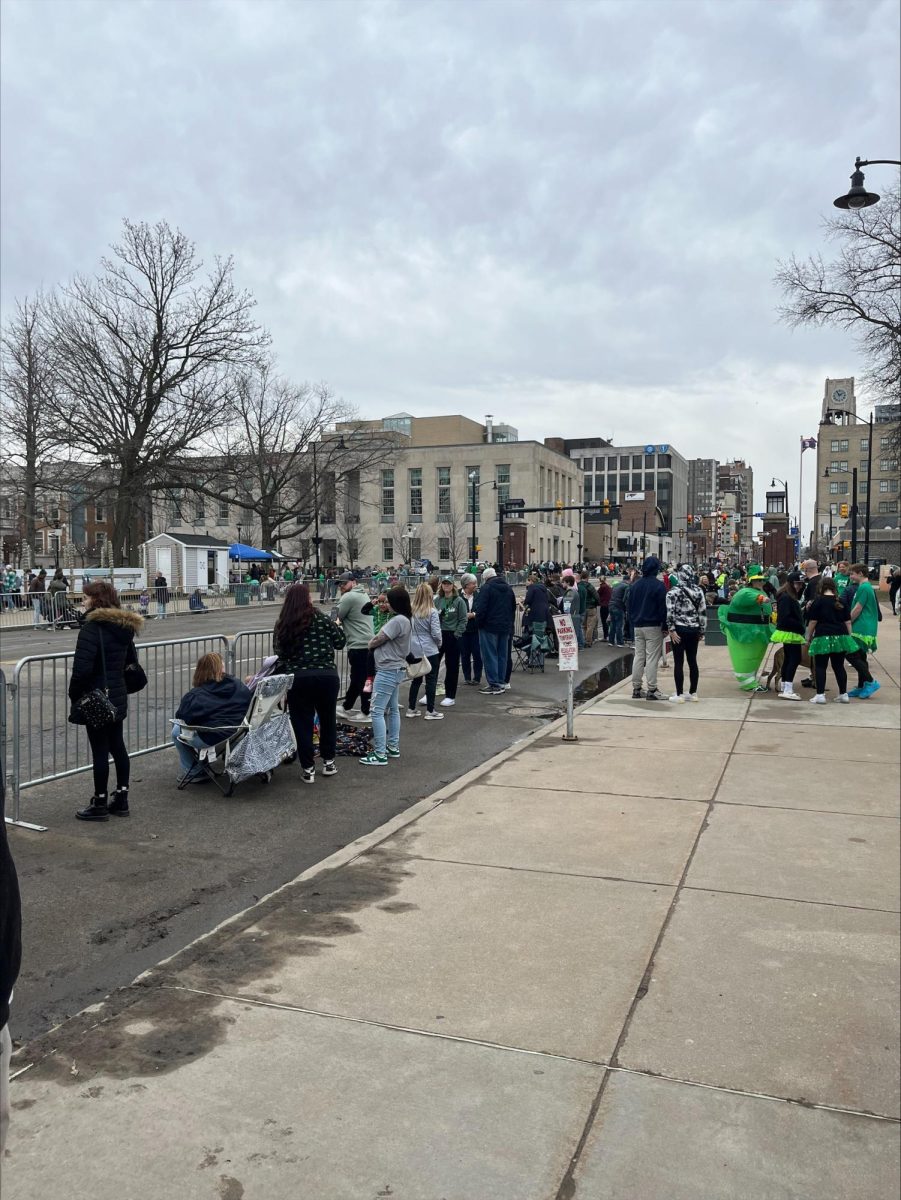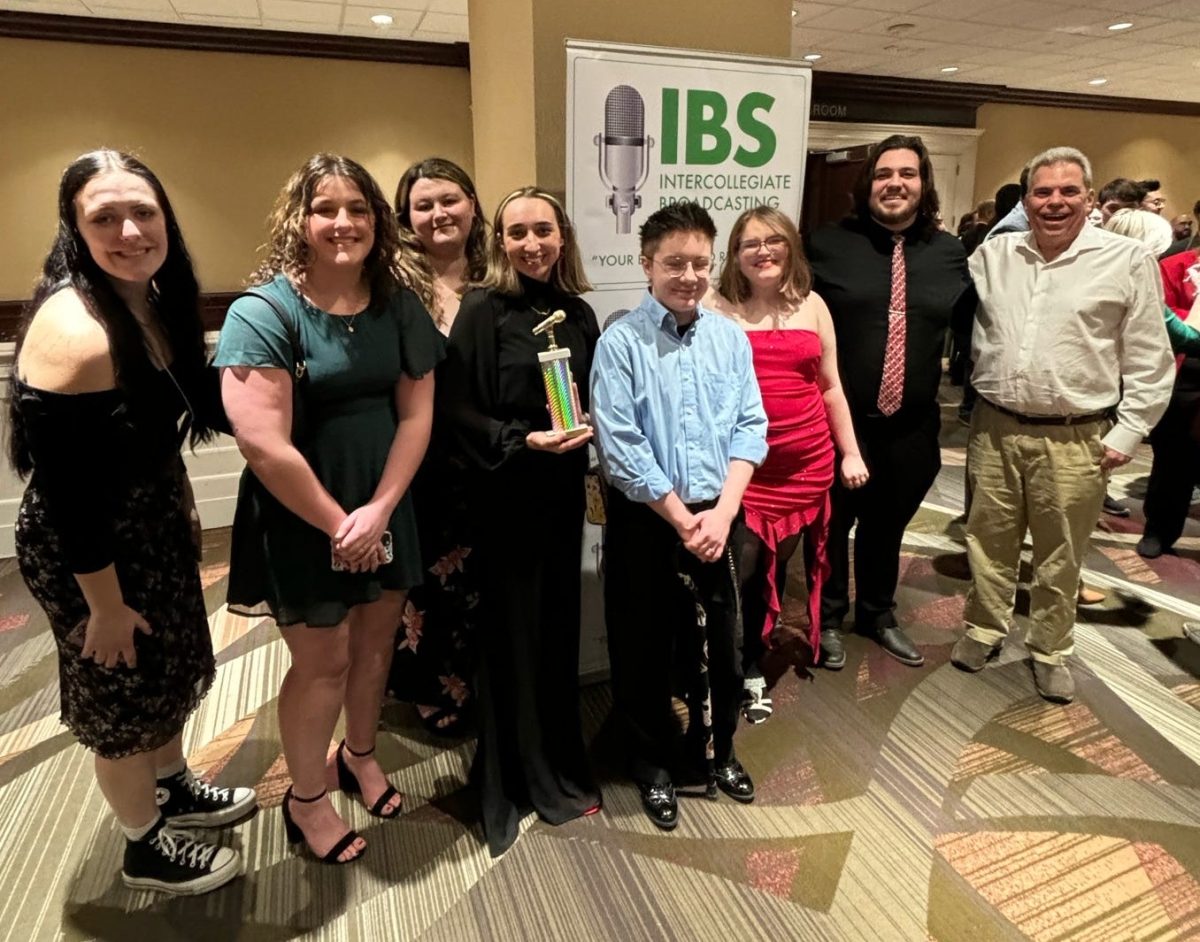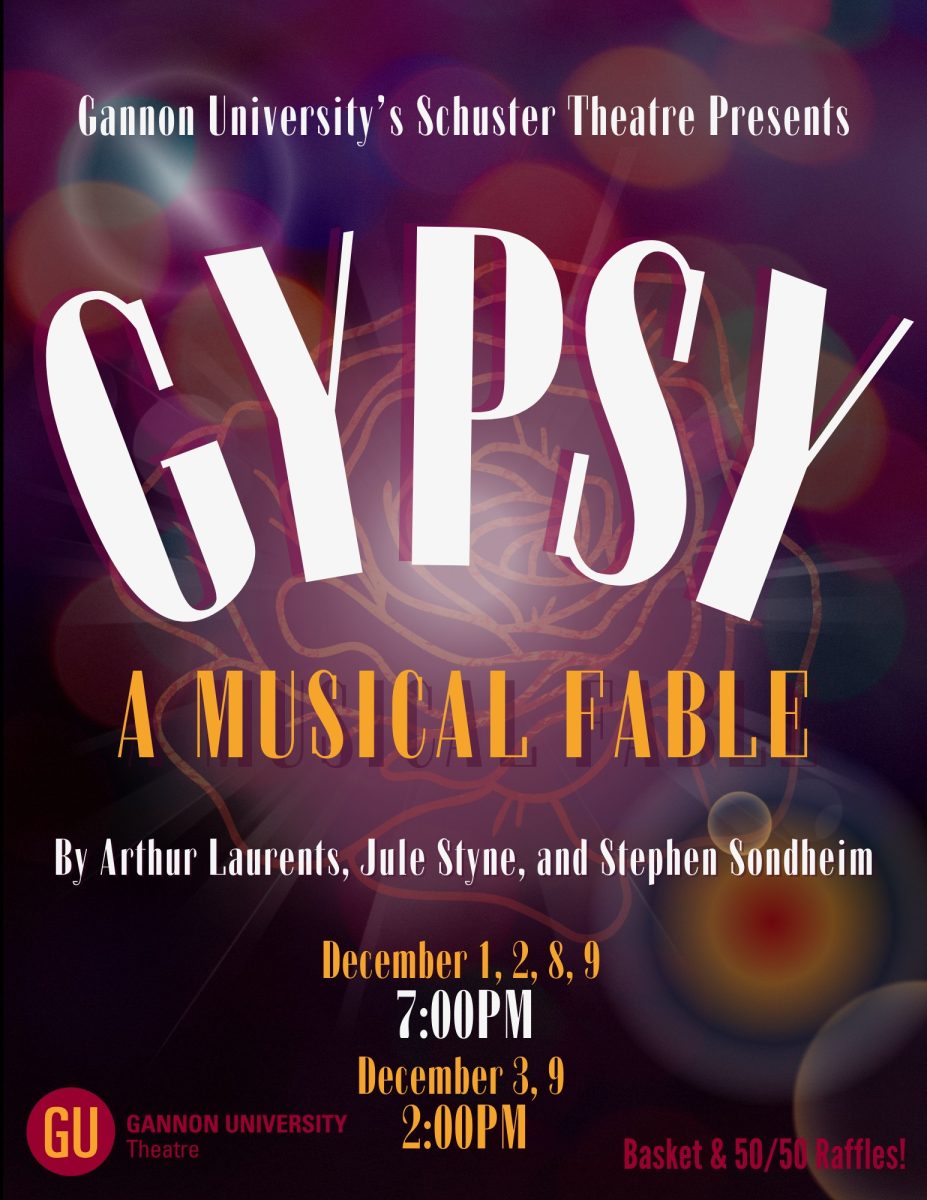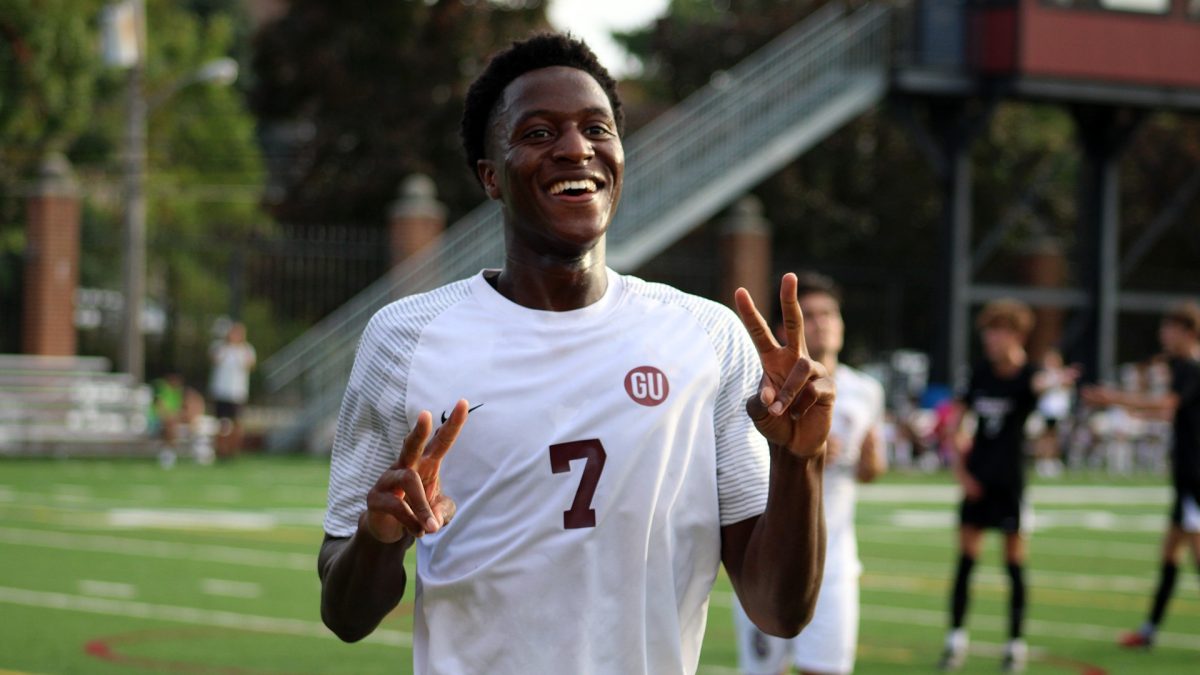By SAMANTHA GRISWOLD
managing editor, news
As a part of International Education Week and Gannon University’s yearlong Culture and Climate Change theme, five Rwandan young adults visited the campus during their two-month long U.S. tour to speak about the Rwandan genocide and how it has shaped their lives.
Angela Kagabo, 16, was the first to speak at Mondy night’s iDebate Rwanda event and talked about the goal of the program.
“The main goal of the debate team is to help the post-genocide generation answer questions,” Kagabo said. “A lot of the generation is confused and our parents don’t want to talk about the genocide, so the team aims to help answer some of their questions.”
Harmonie Isabane Muhumuliza read a piece called “Letter to My Future Child,” a letter addressed to the author’s future child talking about how to cope with the rift in the family caused by the genocide.
The letter talked about the author’s father, who was poor, hardworking and educated. She spoke of how the author’s father never engaged in public demonstrations or political debates for fear of backlash because he did not support the Hutu regime. She said he was silent to protect his family.
He died right after the United Nations left the country, Muhumuliza said. The people killed him because he was Tutsi, but did not kill his wife and children.
The author said she understands that her father made mistakes and wasn’t perfect. She also said that she wrote the letter because her child would understand the pain she feels, but would grow up with a loving father.
Eric Bahizi Habineza spoke next and read a piece about a man who didn’t know his father growing up, but assumed he was dead. The man discovered that his father was still alive through a distant family member on Facebook.
Habineza also said that the man’s father was in charge of security during the genocide, so the father fled the country in fear of being arrested. The man is ashamed by what his father did and felt guilty by association, but that he is working through his guilt and wants to go into politics to help prevent future conflicts.
Sharon Kirezi Bayingana read a piece about the confusion that her post-genocide generation has about being proud, yet ashamed of their heritage.
She said that she is proud of her name, origin, native culture, customs, language, beliefs and history, but is guarded at the same time.
“It’s a contradiction but we understand it,” Bayingana said. “Sadly, the human race battles its own kind, but evil battles over kindness.”
She also said that their generation has to pass the knowledge on, train kids and coach them to protect themselves.
“Have we learned from history?” Bayingana asked. “Are we better or the same? Are we ashamed, proud or both?”
Bruce Intwali Murangira spoke about the history of Rwanda and the genocide.
“Think of 9/11 and how many people died that day,” Murangira said. “Now think of three 9/11s and add 1,000 more deaths every day for 100 days and that’s how many people died during the genocide.”
Murangira said that in pre-colonized Rwanda, the Tutsi, Hutu and Twa were social classes. Cows were used as measures of wealth — if you had more than 10 cows, you were rich and you were considered a Tutsi; if you had less than 10 cows, you were middle class and you were considered a Hutu; if you had less than that, you were poor and you were considered a Twa.
After Rwanda was colonized by Germans, the idea of eugenics was introduced into Rwandan society and changed the meaning of being a Hutu or Tutsi. If you were tall with a long nose and light skin, you were thought to be a Tutsi; if you were short with a wide nose and dark skin, you were thought to be a Hutu.
The government began to favor Tutsis and gave them access to health care and education, while the Hutus were forced into slave labor.
This led to Hutus developing feelings of community and belonging because they were suffering together and they soon began to feel resentment and hatred toward the Tutsis for being favored.
Murangira said that in 1959, the Hutu Revolution took place and more than 20,000 Tutsis were killed and houses were burned.
The 1960s brought along policies of ethnic discrimination — they began to introduce Tutsi quotas in schools and programs. The government also began using propaganda to paint the Tutsi as the enemy.
“When you call a person a cockroach, you dehumanize them,” Murangira said. “It makes you less than human.”
Historically, Rwanda’s main economy is agriculture, but as the population grew, land became scarce. In the 1980s, the prices of coffee and tea, which are Rwanda’s major exports, dropped and famine and living conditions worsened.
In the 1990s, the Rwandan Patriotic Front, a political party, invaded the country as the Tutsi exiles were trying to return to the country. Rwandan media further painted them as the “bad guys” who tried to break in with America’s help to oppress the people.
On April 6, 1994, the Rwandan president was shot and the genocide began.
“People within their own communities began murdering each other,” Murangira said. “People were killing their friends and neighbors.”
After the genocide, the government made sure that the murderers were held responsible for their actions and gave people a platform to tell their stories. The government began to implement itself back into society – agriculture began to improve and became more production-driven, education was improved and there were more opportunities to work to unite Rwanda.
“It’s very difficult for people to let go of something that has become a part of their identity,” Murangira said. “Mistrust and resentment is transmitted to children; there’s pain when we realize how much we have lost and our relatives who have died.
“Victims of genocide go beyond survivors — survivors’ children and family are victims as well.”
Murangira also said that the debate team helps people of his generation develop critical thinking to decide for themselves what is right.
“It helps us to understand that we don’t have to live a narrative that isn’t ours,” he said. “Our parents’ stories don’t have to be ours.”
SAMANTHA GRISWOLD
[email protected]



